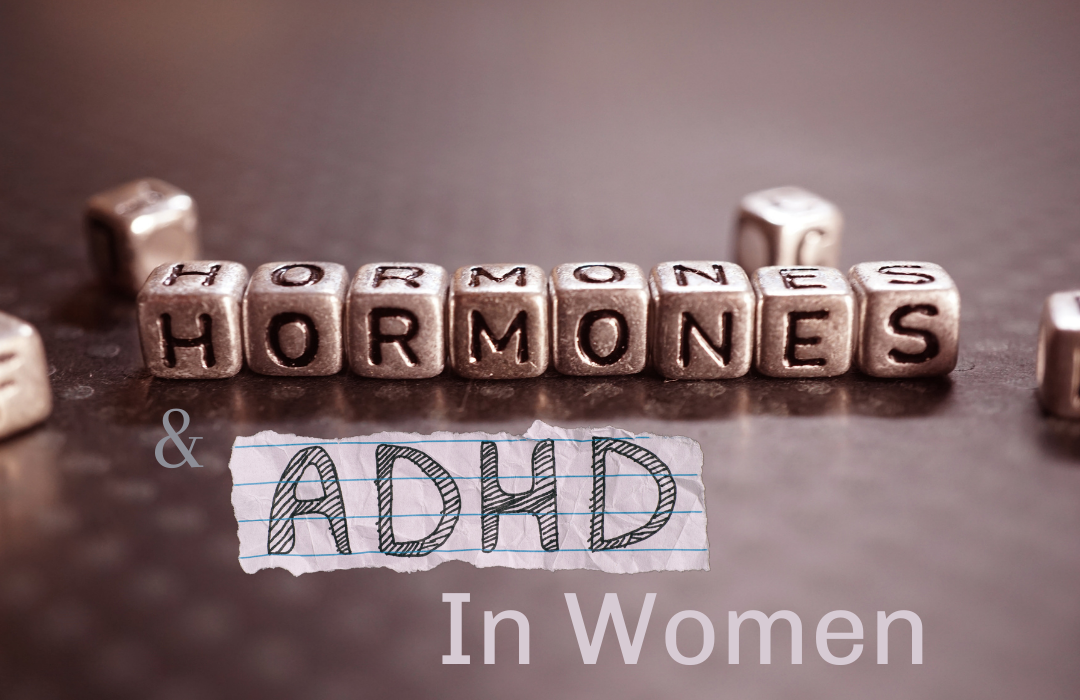Welcome to my blog, a space that holds a special place in my heart.
As a 38-year-old woman with ADHD and undergoing Surgical Menopause, I believe that the information I am about to share is critical for all women, even those without ADHD. Our hormones play a crucial role in maintaining a healthy lifestyle, and I wish I had access to this information earlier. So, in this edition, let's dive into the topic of hormonal imbalances and ADHD in women together.
I understand the challenges that come with this condition. ADHD affects approximately 4% of adults worldwide, and it can cause symptoms such as inattention, impulsivity, hyperactivity, and difficulties with organization and planning. While both men and women can experience ADHD, the way it manifests and is influenced by hormones can differ between the genders.
Women have two primary sex hormones, oestrogen, and progesterone, which fluctuate throughout their lives. These hormones affect various bodily functions, including mood, cognition, metabolism, and reproduction. Research has shown that oestrogen can affect brain chemicals such as dopamine, serotonin, and norepinephrine, which are involved in ADHD. When oestrogen is high, it can enhance attention and executive functioning skills. Conversely, when oestrogen is low, it can worsen ADHD symptoms. Progesterone has a calming effect on the brain, but when it is high, it can impair memory and concentration.
It's important for women with ADHD to be aware of how their hormones affect their symptoms. Some of the key life stages that can affect hormonal balance and ADHD in women are puberty, menstruation, pregnancy, and menopause.
Here are some additional details on how each of these stages can impact women with ADHD:
Puberty: Puberty can trigger or worsen ADHD symptoms in girls who may have been previously undiagnosed or underdiagnosed. Girls with ADHD may struggle more with inattention, forgetfulness, low self-esteem, anxiety, and depression than boys with ADHD. It's important for parents and educators to recognize these symptoms and get the child evaluated for ADHD if necessary.
Menstruation: Hormonal fluctuations during the menstrual cycle can cause ADHD symptoms to worsen in some women. This can lead to mood swings, irritability, fatigue, cravings, and difficulty focusing during the premenstrual phase. On the other hand, some women may find that their symptoms improve during the ovulation phase, when oestrogen levels peak. Recognising these fluctuations can help women with ADHD plan their activities and medication schedules accordingly. It is also important to note that this can also cause PMS and PMDD.
Pregnancy: During pregnancy, some women may find that their symptoms improve due to increased levels of oestrogen and progesterone. However, other women may experience more difficulties with memory, concentration, sleep quality, and emotional regulation during pregnancy. Additionally, women may face challenges with medication management during pregnancy due to potential risks for the foetus.
Menopause: Menopause involves a gradual decline in oestrogen and progesterone levels over several years. This can exacerbate ADHD symptoms in women who may have been coping well before. Women may experience more problems with attention span, working memory, mental clarity, mood stability, and hot flashes. Recognizing these symptoms can help women with ADHD seek appropriate treatment and support. This is more severe when experiencing Surgical or Chemical Menopause.
It's also important to note that symptoms of ADHD in women can differ from those in men. Women with ADHD may be less hyperactive but more disorganized and forgetful. They may also experience more anxiety, depression, and low self-esteem. If you suspect you have ADHD, it's important to get evaluated by a mental health professional who specializes in ADHD. Treatment options may include medication, psychotherapy, lifestyle changes, hormone replacement therapy (for menopausal women), and testosterone therapy (for women with low testosterone).
ADHD is often missed in females because doctors may not recognize the signs and symptoms. While some women with ADHD may have hyperactivity, most women experience internalized symptoms like depression or anxiety and struggle with inattention. Here are some common signs of ADHD in women that you may recognize:
Trouble focusing
Poor time management
Disorganization
Impulsiveness
Outbursts of anger
Forgetfulness
Lack of motivation
Restlessness and anxiety
Fatigue
Poor self-image
Relationship issues
If you notice any new, severe, or persistent symptoms, it's essential to reach out to a healthcare provider. Untreated ADHD can cause various mental and physical issues that can strain relationships and affect productivity.
In summary, hormonal imbalance and ADHD in women are closely linked. Women with ADHD should be aware of how their hormones affect their symptoms and seek appropriate treatment and support. Recognising the symptoms of ADHD in women and hormonal fluctuations can help women with ADHD plan their activities, medication schedules, and self-care routines accordingly.

